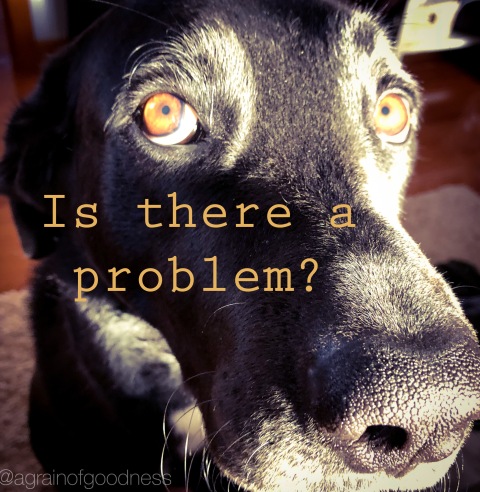
Tears flowed this week as people talked to me through their computer screens. With eyes cast downward, they shared the hurts. They expressed frustration with themselves for not getting off the couch, doing their work, or even going outside in the sun.
People are truly tender right now.
It is definitely no time for negative self judgment. It is time to understand how your human brain is made for fear. This information will help you let go more easily when dealing with anxiety.
Recognize your brain is truly a danger magnet.
It is literally made to find threats and problems. The part of your brain devoted to this task is called the amygdala and, NO, you cannot have it removed.
It is a little almond shaped structure located deep in the lower part of your brain and it is seriously sensitive to any tiny whiff of trouble. The amygdala can be even more sensitive for those struggling with anxiety, but not all.
One source I read indicated that the amygdala unconsciously scans for danger as frequent as five times per second! FIVE TIMES PER SECOND!
That’s a lot.
This is your brain at work protecting you quietly in the background. Definitely a good thing.
The bad news is…there is not a brain structure dedicated to finding safety, security and peace. You must actively seek this out on your own.
Use this information to limit the amount of fear-filled news you expose your brain to. News feeds the amygdala’s need to find a problem. All you have to do is turn on the 24 hour Coronavirus news coverage and the messages scream danger at you when there really isn’t any.
Bring your attention back to sitting in your living room. Notice how you are okay. If you are snug in your house watching TV, then there isn’t an issue you need to worry about or act on.
Understand fear. It will lie to you in an effort to keep you alive.
Your very own thoughts might be triggering your amygdala. Fears will tell you bad things are happening long before anything bad actually happens. Worries about loosing your job, house, grandparents or feelings of disconnection, isolation, and sadness all set off amygdala alarm bells.
Just a few great ideas for getting these worries under control are;
- Talk worries out with a person who actually helps you gain perspective. Steer clear of people who fuel the jitters or increase the dread.
- Use your body to overcome fear and anxiety by engaging in physical exercise or doing things to relax and release tension.
- Deal with anxiety by setting aside a short amount of time to let your worries off the leash. Allow yourself a half hour each day to indulge in all the terrible things that might happen. Outside of that half hour, you gently stop yourself and let go of anxiety producing thoughts.
- Journal your heart out. Writing is a form of processing and will help you let go. It is essential to purge the problems AND identify the good things you have going on in your life when you journal.
Balance is the goal.
Give your brain at least as much opportunity to discover fully how you are well.
Redirect your focus to what helps you feel protected, secure, and calm on purpose. It takes effort! Expect to work at it.
Do it like you want to evolve a new brain structure for monitoring the ease and tranquility present in your life.
This is good stuff! Share this post with others you think might benefit or maybe leave a comment down at the very bottom of this blog to let others know what you do to train your brain toward finding safety.
Let’s love ourselves and others all the way through this pandemic!
All the best-
Lori

I am coping with quarantine by roaming through blogs and commenting as seems right. I found a whole subset of mental illness/depression focused blogs. Commenting is hard for that group, because many people despise positive advice and actually consider such advice as disempowering. My own viewpoint, which is one I feel is an effective conversational tactic, is to point out that depression is a kind of drug addiction, a self-medication behavior where feeling bad feels better than facing reality. There is a kind of pleasant effect associated with morose thinking, just like there is a stimulating effect for rage and a drunken sort of sensation for pathological lethargy. All these effects are related to neurotransmitters and endogenous opioids and such.
LikeLike
Interesting thoughts! Humans do some amazing things to try and get away from “pain”. People often only want to consider views that validate their own views. I like to think we are all empowered creators of our own realities.
LikeLiked by 1 person
Me too I SUPER-AGREE (about being “empowered creators of our own realities”), but really we are lucky not to be enslaved or incarcerated or mentally or physically ill or living in unbearable circumstances. I think that perhaps just these considerations led ancient Indian psychic researchers to invent the concepts of dharma and karma, which seem to me to be explanatory but clearly false and harmful in their own ways because they replace human agency with a supernatural system of control.
Of course, there is a lot to unpack regarding actual human agency, and in fact it is the goal of the MMP to provide another source for the children of the 21st century.
LikeLiked by 1 person